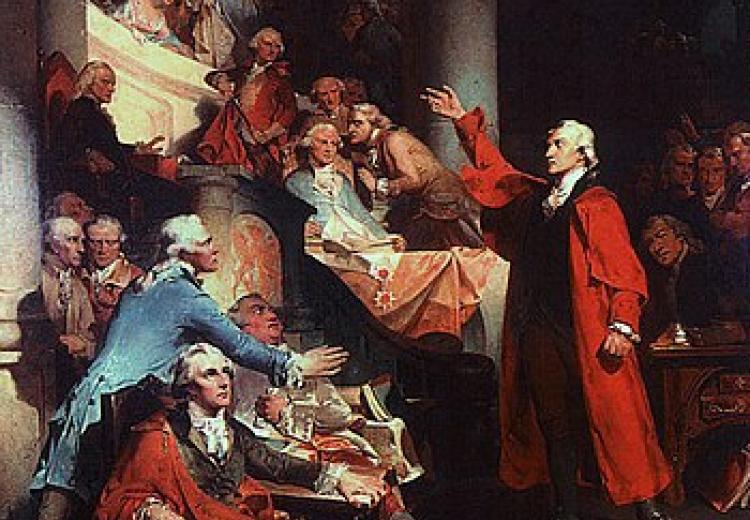Lesson 1: Anti-federalist Arguments Against "A Complete Consolidation"

Patrick Henry, an anti-federalist, speaking in the Virginia House of Burgesses, May 1765.
Throughout 1787-88, as Americans continued to debate the proposed Constitution, one of the most contentious issues was whether the Union – tightened into one indissoluble nation under a federal government – could be maintained without doing away with both liberty and the state governments. Anti-federalist Brutus (generally assumed to be New York delegate Robert Yates) summarized the issue thus:
“The first question that presents itself on the subject is…whether the thirteen United States should be reduced to one great republic…or whether they should continue thirteen confederated republics, under the direction and control of a supreme federal head for certain defined national purposes only?”
This lesson will focus on the chief objections of the Anti-federalists, especially The Federal Farmer (Richard Henry Lee), Centinel (Samuel Bryan), and Brutus (Robert Yates), regarding the extended republic. Students will become familiar with the larger issues surrounding this debate, including the nature of the American Union, the difficulties of uniting such a vast territory with a diverse multitude of regional interests, and the challenges of maintaining a free republic as the American people moved toward becoming a nation rather than a mere confederation of individual states.
Guiding Questions
What are the merits of the Anti-federalist argument that an extended republic will lead to the destruction of liberty and self-government?
What is the proper role of a federal government?
To what extent have the Anti-federalists’ fears about a consolidated government proved true over time?
Learning Objectives
Understand and be able to apply what Anti-federalists meant by the terms “extended republic” or “consolidated republic.”
Analyze and rank the problems the Anti-federalists believed would arise from extending the republic over a vast territory.
Assess the nature and purpose of representation in a republic and the degree to which this has served to advance democracy.
Evaluate the following position of the Anti-Federalists: Representation in a large republic will lead to abuse of power by those in national office or the use of force to execute the laws.
